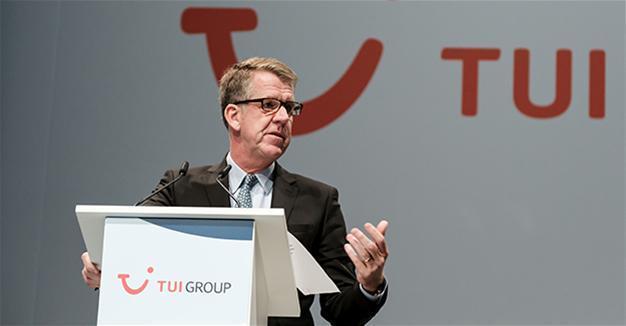European tourism giant eyes new markets to fill its hotels
BERLIN - Reuters
 European travel and tourism company TUI said it aims to start offering holidays to customers from countries such as China, India, Spain and Italy as it seeks new ways to keep its hotels full.
European travel and tourism company TUI said it aims to start offering holidays to customers from countries such as China, India, Spain and Italy as it seeks new ways to keep its hotels full.TUI has been reorganizing its business to invest in more of its own hotels and cruise ships and has been selling off units that it doesn’t see as core, such as Hotelbeds and Travelopia, a portfolio of specialist holiday brands which it agreed to sell on Feb. 13.
Chief Executive Fritz Joussen told journalists on Feb. 14 that while TUI sells holidays to southern Europe, it doesn’t take customers from those countries on holiday and it wanted to change that.
“This is also true for China, Southeast Asia ... We’re looking at countries with increasing middle classes and high synergies,” he said, announcing the plan which targets 1 million customers and 1 billion euros ($1.1 billion) in revenues.
Joussen said TUI would keep investment costs by focusing on digital sales channels and making sure that customers were directed to its own hotels in places such as the Caribbean and Thailand. That will help to minimize risks if it proves not possible to build up the business successfully in these new markets.
“Many have entered China and come back with a bloody nose. This should not happen to us,” he said.
Joussen was speaking after TUI reported a narrower loss for the first quarter of 66.7 million euros, a 17 percent improvement on last year. Tourism companies typically make losses during the winter months.
TUI confirmed a forecast for core earnings to rise by at least 10 percent this year at constant exchange rates and said summer trading was in line with expectations.
Rival Thomas Cook last week gave a cautious outlook for its financial year, citing depressed demand for holidays in Turkey and the impact on sterling of Britain’s vote to leave the European Union.
Joussen said that summer bookings from the UK were up 3 percent on last year and revenues were 12 percent higher. Revenues were being driven by a combination of higher prices and customers spending more to travel further afar.
“Higher prices are necessary because of the depreciation of the British pound, you need higher prices to cover higher costs in destinations,” he said, without specifying further price rises for British holidaymakers.
















